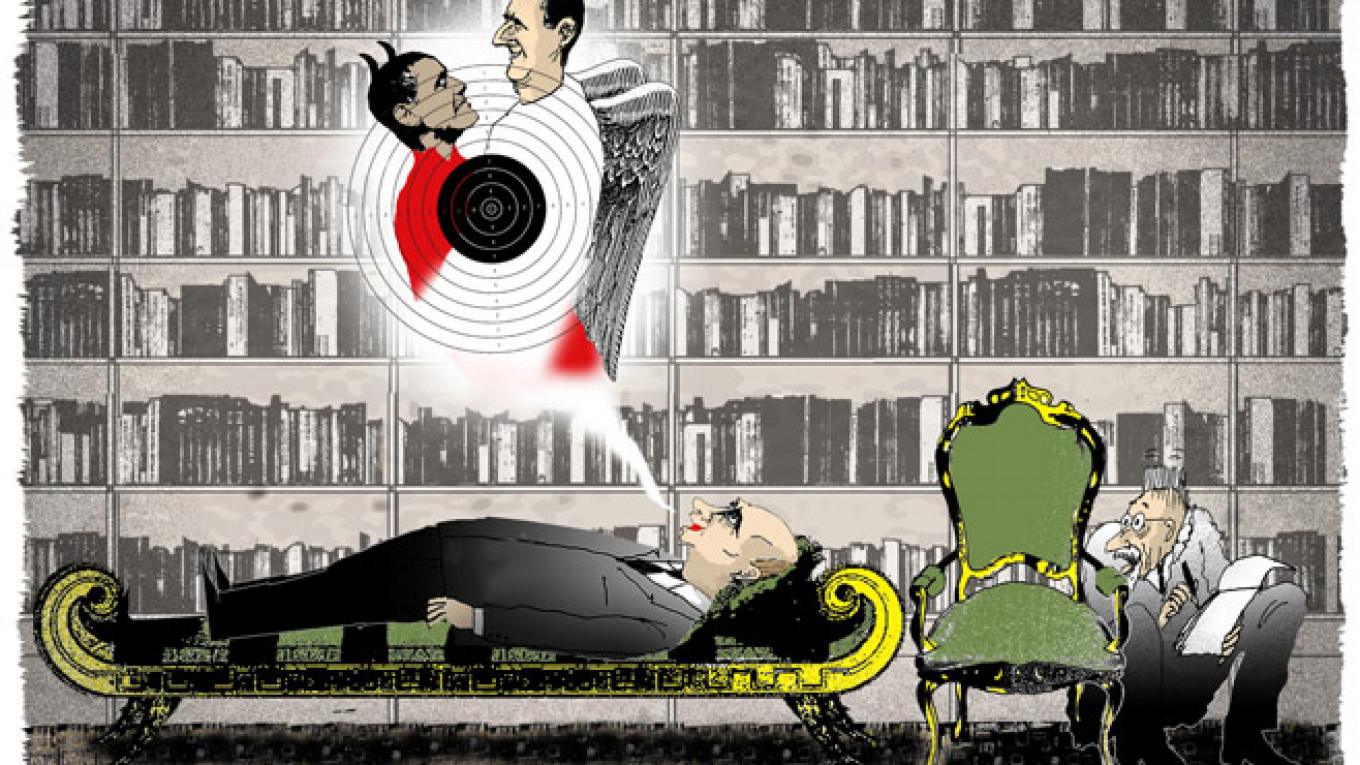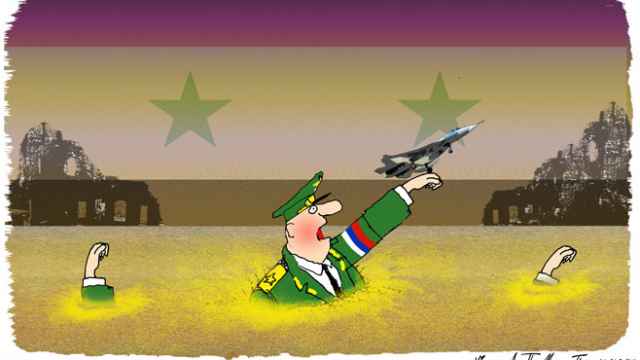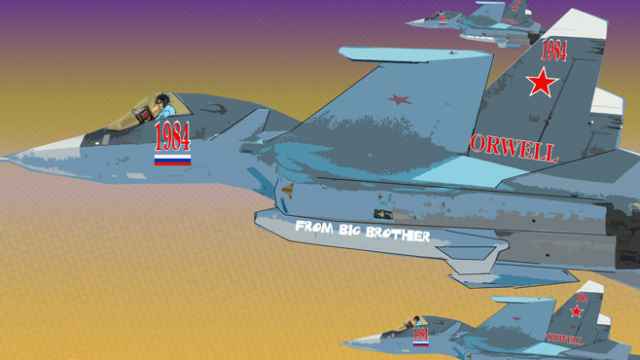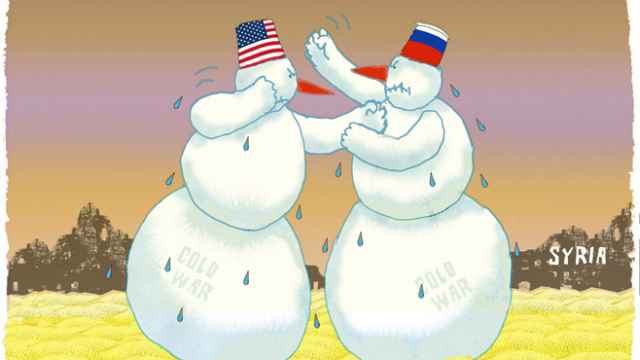Once a year, the Kremlin organizes a very interesting "tour" for a select group of foreigners whom it brings together under the banner of the Valdai International Discussion Club. It is an excursion into another world, one that, according to German Chancellor Angela Merkel, President Vladimir Putin inhabits all alone. The latest "Valdai odyssey" took place recently. What did participants learn?
They learned that, first and foremost, Putin continues to profess a very primitive version of Realpolitik. "Periods of peace in both European and world history have always been based on securing and maintaining the existing balance of powers," he said. He is convinced that the same thing is happening now.
And, of course, he believes that the United States is the main source of problems in the world and that nobody has been able to restrain Washington since the collapse of the Soviet Union. That is why Putin still uses every opportunity to harp on the fact that the U.S. withdrew from the Anti-Ballistic Missile Treaty 15 years ago. This time he recalled when U.S. Ambassador Jack Matlock risked recommending that Moscow and Washington continue their talks on strategic arms. At the same time, Putin continually complained that U.S. actions were "devaluing" nuclear deterrence.
In making these comments, Putin shows a certain disregard for elementary logic. At some point, he seems to have completely forgotten that Washington's withdrawal from the ABM Treaty did not prevent Russia and the U.S. from signing not one, but even two treaties on reducing strategic nuclear weapons — and not on Moscow's terms, but on Washington's.
In particular, Moscow's chief negotiator and now Deputy Defense Minister Anatoly Antonov — a true-blue Russian patriot — agreed to count each aircraft in Washington's far superior force of strategic bombers as if it were a single nuclear warhead, when in fact each carries multiple cruise missiles. That alone greatly strengthened U.S. dominance which, if to believe Putin, Washington is already reinforcing with its missile defense program.
Of course, Putin's complaint is not with the nuclear balance per se. Putin probably does not seriously believe that the U.S. would take advantage of its military superiority to deliver a swift first strike against Russia. No, he seems to think that Washington created its missile defense system in order to diminish the threat posed by Russia's nuclear arsenal — the only thing that enables Russia to maintain at least a semblance of superpower status.
Moscow also uses regional wars as a means for inflating its importance in international affairs. Not long ago, Putin proved his right to sit at a modern-day "Yalta conference" by waging a hybrid war in Ukraine. Today he is waging a war in Syria. In the most sensational statement to emerge from his Valdai speech, Putin said: "Certainly, the Syrian government must establish working contact with those opposition forces that are ready for dialogue. I understood from my meeting with President Bashar Assad the day before that he is ready for such dialogue." In this way, Moscow assumes the role of a major player in the Middle East.
Putin devoted a significant part of his presentation to denouncing Washington for attempting to differentiate between "moderate" and "immoderate" terrorists. That means everyone who is warring with Assad is a terrorist and a legitimate target for Russian aircraft. In this case, which opposition groups do Assad and his Russian patron define as "correct" and "patriotic," as suitable negotiating partners? Obviously, only those that are willing to cooperate with Assad. Well, good luck finding such a group in the chaos of Syria's sprawling civil war.
Putin made no secret of his intentions. "For all the drama of its current situation, Syria can become a model for partnership in the name of common interests, resolving problems that affect everyone, and developing an effective risk management system," he said.
It is obvious that Putin embarked on his foray in faraway Syria to force the West to accept Russia as a partner. And when that does not work as planned, Putin slips effortlessly into wishful thinking: "We are also close to starting an exchange of information with our Western colleagues on militants' positions and movements," he said.
However, I have seen nothing to suggest that the West is preparing to share intelligence on Syria with Russia. Just the opposite is true. For example, The New York Times reported that White House officials recently met to discuss the establishment of a no-fly zone over Syria. That hardly looks like a prelude to closer cooperation with Moscow.
The world that Putin inhabits is far removed from reality. But that is what makes it so interesting for the foreigners invited on this "otherworldly" excursion. Who could fail to feel enthralled when a leader who single-handedly decides the fate of his country and his citizens recounts a lesson from childhood with such pleasure? "Fifty years ago, I learned one rule in the streets of Leningrad," he said. "If the fight is inevitable, be the first to strike." Otherwise, Putin implies, the West might really attack Russia.
Alexander Golts is deputy editor of the online newspaper Yezhednevny Zhurnal.
A Message from The Moscow Times:
Dear readers,
We are facing unprecedented challenges. Russia's Prosecutor General's Office has designated The Moscow Times as an "undesirable" organization, criminalizing our work and putting our staff at risk of prosecution. This follows our earlier unjust labeling as a "foreign agent."
These actions are direct attempts to silence independent journalism in Russia. The authorities claim our work "discredits the decisions of the Russian leadership." We see things differently: we strive to provide accurate, unbiased reporting on Russia.
We, the journalists of The Moscow Times, refuse to be silenced. But to continue our work, we need your help.
Your support, no matter how small, makes a world of difference. If you can, please support us monthly starting from just $2. It's quick to set up, and every contribution makes a significant impact.
By supporting The Moscow Times, you're defending open, independent journalism in the face of repression. Thank you for standing with us.
Remind me later.







